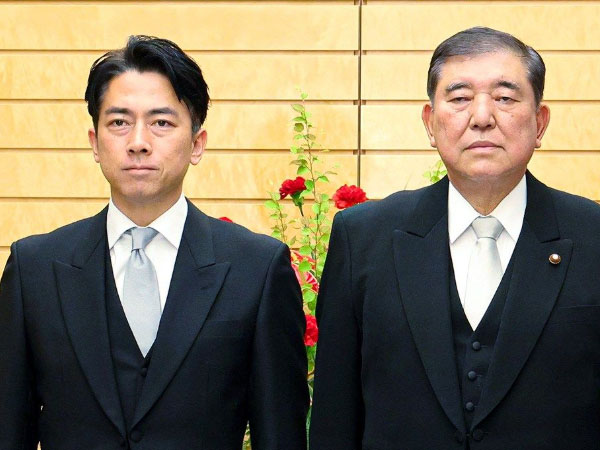 Eight of Japan’s main media organizations have published the results of their May 2025 opinion surveys, indicating strong consumer dissatisfaction and little good news for the poorly supported government of Prime Minister Ishiba Shigeru.
Eight of Japan’s main media organizations have published the results of their May 2025 opinion surveys, indicating strong consumer dissatisfaction and little good news for the poorly supported government of Prime Minister Ishiba Shigeru.
Rising Unhappiness with Team Ishiba
The monthly public opinion polls carried out by eight leading Japanese media organizations turned out another set of dismal numbers for the administration of Prime Minister Ishiba Shigeru in May 2025. The highest percentage of respondents indicating support for the government was just 34% in the Nikkei survey, up a single percentage point from April; at the low end was the 20.9% support in the Jiji Press poll, down 2.2 points month on month. All-time lows in support percentages came in five of the polls (NHK, Yomiuri Shimbun, Jiji, Mainichi Shimbun, and Kyōdō News), and three of them—Jiji, Mainichi, and Kyōdō—showed approval ratings below the 30% mark.
On the disapproval side, meanwhile, Mainichi turned out the highest number, up 1 point from April to 62%, and even the lowest disapproval rating, seen in the NHK poll, was up 3 points to 48%. All seven organizations other than NHK found more than half of respondents disapproving of the administration’s performance, with the newspapers Mainichi, Sankei Shimbun, and Nikkei marking this above the 60% level.
Our tracker for the Jiji Press poll shows that the Ishiba administration has hit an all-time low in its approval rating for the second consecutive month, while the disapproval number has hit an all-time high for the third month in a row. The downward trend in public support for Ishiba shows no sign of letting up, bringing his numbers close to those seen for his predecessor, Kishida Fumio, shortly before the end of his time in office.
Koizumi Impact Lower than Hoped
Respondents to the various surveys noted various reasons for their dissatisfaction with the current government, including skyrocketing rice prices, Japan’s response to the threat of US tariffs on Japanese exports, and the administration’s rejection of proposals floated on reductions to the consumption tax rate.
Prime Minister Ishiba removed Etō Taku from the post of agriculture minister after the latter’s gaffe, a comment that he had never had to purchase rice himself since his constituents gifted him so much of the grain. In tapping Koizumi Shinjirō, the Liberal Democratic Party’s former Election Strategy Committee chair, to fill the position, Ishiba hoped to prompt a reversal of his fortunes in the public opinion department, but this did not come in time to appear as a bounce in the ratings in the May polls; in the Nikkei survey, however, more than 60% of respondents indicated that they were “hopeful” about how Koizumi would perform in the role, and a separate poll carried out by Kyōdō on May 24–25 turned out a 31.7% approval rating for the government, up 4.3 points from its mid-May survey.
The ruling and opposition parties alike are keenly watching rice price trends as they gear up for the House of Councillors election slated for July this year, and agricultural policy is a key focus of attention in Diet debate. Coming sooner on the political calendar is the June 22 election for the Tokyo Metropolitan Assembly, viewed as a harbinger of the major parties’ fortunes in the national contest later in the summer.














© Copyright 2025 The SSResource Media.
All rights reserved.